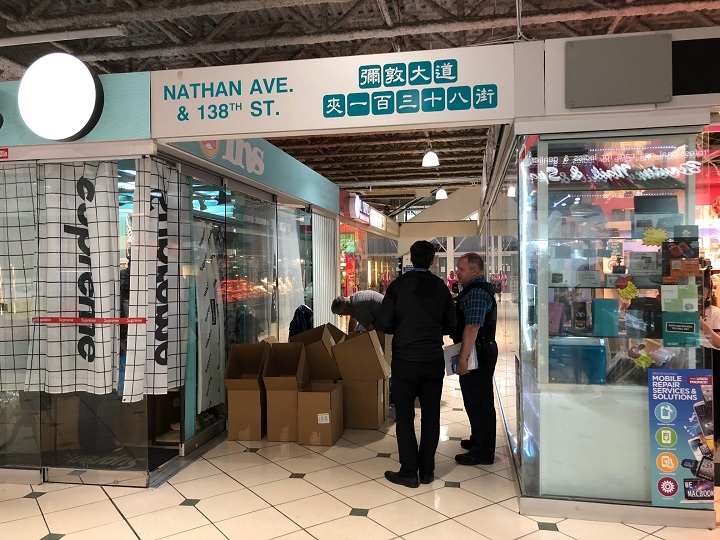The developer of a nearly empty new mall just north of Calgary says he’s confident it will become the bustling Asian-style bazaar it is meant to be despite having to delay its late-October grand opening until sometime next year.

Only nine of 517 retail spaces in the New Horizon Mall have opened for business since owners were allowed to take possession in May, said Eli Swirsky, president of The Torgan Group of Toronto.
READ MORE: New concept shopping mall poised to welcome 500 retailers
“I love the mall. I think the mall will be fine,” he said in an interview. “I wish it was faster, of course, but every time I go there I’m awed by its size and potential and I think we’ll get there.
“I’m not at all giving up. I think everyone will be happy.”
He said he expects there to be 20 stores open by the end of September but wouldn’t commit to a grand opening date, saying it will be set when a “critical mass” of 80 to 100 stores are open, possibly by year-end but more likely next spring.
The optimistic outlook stands in contrast to the eerily empty glass cubicles and “For Lease” signs in the freshly painted mall located south of the always-crowded CrossIron Mills outlet shopping centre that opened in 2009.
“It’s surreal. It’s not normal — we’re in the Matrix,” said shopper Pat Williams, who wandered the mall’s echoing hallways taking pictures on Thursday.
Delaying the grand opening is a good idea given the mall’s deserted shops, said Rami Tawil of Silk Road Importers, a retailer of men’s and women’s undergarments from the Middle East. He moved to Canada from Syria three years ago and is leasing his small space from its owner.
“I think now it’s better if we push it a couple of months because we need more stores here to open,” he said. “We need the people coming to see more stores.”
READ MORE: Investors in Asian-style New Horizon Mall north of Calgary confident of success
The New Horizon Mall is modelled on The Torgan Group’s Pacific Mall in the Toronto area that opened about 20 years ago.
Unlike most shopping centres in Canada, about 70 per cent of New Horizon Mall’s retail space has been sold to individual investors who have the option of leasing to others or operating the space themselves. The rest of the space is being held by the developer for large anchor tenants that the mall hopes to start announcing soon.
READ MORE: Canadian mall one of world’s most notorious sources of counterfeit goods: U.S. report
Some of the investors are still working with the mall to try to figure out what products or services they want to offer in their shops, while others are still trying to lease or sell their spaces, general manager Jason Babiuk said.
The $200-million development broke ground in June 2016. Most malls in Canada are owned by property management companies that then lease the space to retailers.
The difficulty in filling the mall is likely mainly due to its condo ownership model, which tends to attract investors who may not know much about the market rather than owner-operators, said retail analyst Maureen Atkinson, a senior partner at J.C. Williams Group.
“The challenge with the condo model is that the people who run the stores are typically not the people who own them,” she said.
“So they would have sold these to investors … who see it as an investment and they may have trouble finding somebody who wants to run a business.”













Comments